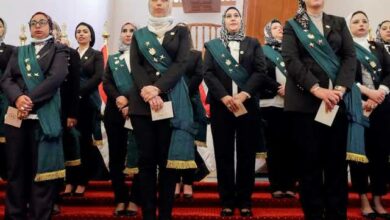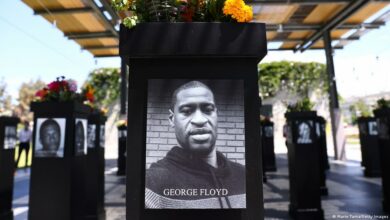The head of the committee responsible for amending the law regulating Egypt’s judiciary has revealed in an exclusive interview with Al-Masry Al-Youm that the proposed amendments, if passed, will lend the judiciary greater independence from the executive.
The changes to Judicial Authority Law 142/2006 will limit the role of the executive in intervening in judicial affairs and give the judiciary the right to oversee prisons, thereby meeting key demands of reformist judges in calling for a more independent judiciary.
“The committee will convene next Saturday [30 July] to discuss the amendments, which will obviously sideline the minister of justice and put all judicial affairs in judges’ hands,” says Ahmed Mekky, the judge who is presiding over the committee drafting the law.
Mekky says that the amendments stipulate that the promotion of judges and the oversight of judicial affairs will be the sole responsibility of the Supreme Judicial Council (SJC), Egypt’s highest judicial body. Previously, the justice ministry was responsible for these activities.
The amendments also put the SJC in charge of overseeing the prison system.
While Mekky, a longtime advocate for judicial reform, believes the amendments are a step in the right direction, he also advises caution.
“The main themes of the amendments have been discussed since the 1980s, and people have to realize that the proposed amendments are not a magic solution to achieve the independence of the judiciary,” Mekky says. “We need to transform the whole legal system related to the judiciary.”
Mekky also says that the committee will welcome any suggestions for further amendments from lawyers, activists and ordinary citizens. Although it has not been revealed when the amendments will come into force, Mekky says it will be within a year.
On 3 July, Hossam al-Gheriany, a leading figure in the independent judiciary movement, was appointed as president of the Court of Cassation as well as president of the SJC, making him the most influential member of Egypt's judiciary.
Gheriany has said that one of his priorities is to draft a new law regulating the judiciary, replacing the old law, which has been widely criticized.
Egypt’s judiciary has been under scrutiny of late because of the slow progress in trials of officials from the Mubarak regime. Some activists have cast doubt over the ability of the judiciary to tackle the various criminal cases brought against former officials, many of them relating to corruption.
Earlier this month people in the port city of Suez torched police vehicles and threw rocks at government buildings after a criminal court released a group of police officers accused of killing protesters during the revolution.
“What is happening nowadays is that we see violent reactions following judges delivering verdicts. Such reactions show that many Egyptians do not trust their judicial system; this is why a new law is necessary,” said Karim al-Chazly, a legal scholar who specializes in Egyptian law.
The ruling Supreme Council of the Armed Forces' (SCAF) position on the amendments also remains unknown.
“We are dealing now with one element of the independence of the judiciary. The current Judicial Authority Law doesn’t guarantee the impartiality and the financial and administrative independence of the judiciary,” Mekky says. “The law also reinforces the interference of the executive in judicial affairs. We are only proposing amendments to tackle those shortcomings.”
Judges have previously raised concerns about the limited financial resources allocated to them and the courts.
Previously, the judiciary’s finances were completely controlled by the justice ministry, but when Gheriany took over the SJC earlier this month, he was placed in charge of allocating funds. However, the battle for reformists now is over how much the finance ministry allocates to the judiciary.
“The issue of the financial independence is crucial. And only judges should control the budget. This is our battle right now, not with the Ministry of Justice, but with the Ministry of Finance,” says Mekky.
Mekky says there are a number of other challenges to a truly independent judiciary, including what he called a “limited number of judges.” There are only about 8000 judges in Egypt.
“The slow pace of trials is not an issue related to the Judicial Authority Law,” Mekky says. “It is related to the Code of Criminal Procedure, which needs to be amended. Unfortunately, the current judicial procedures hinder the achievement of an efficient judiciary.”
Furthermore, activists and lawyers have raised concerns about the existing laws that give the executive authority to appoint judges to sensitive judicial posts.
”The president, for example, nominates the judges occupying some of the highest judicial positions, like the public prosecutor and the president of the Supreme Constitutional Court,” says Chazly, adding that this presents a significant obstacle to judicial independence.
However, more worrying than these problems is the parallel judicial system of military courts.
The SCAF has tried more than 5000 civilians before military tribunals since February, including many arrested during peaceful protests in Tahrir Square, according to the New York-based Human Rights Watch.
“It is not only the Judicial Authority Law that must be amended in order to have an independent judicial system. Provisions in other laws, which give jurisdiction to exceptional courts, must be abrogated. It is not completely satisfactory that these sensitive cases with political dimensions continue to be settled outside the ordinary courts,” says Chazly.
However, Chazly continues, the most crucial element in achieving a meaningful degree of independence for the judiciary is to get rid of judges who ally with elements of the former regime.
“The new law must be accompanied by the establishment of a purification mechanism – like what happened in many other countries – in order to empty the judiciary of judges who acted as tools of oppression, tools for the Mubarak regime,” Chazly says.
So far, no concrete moves have been made to cleanse the judiciary.




